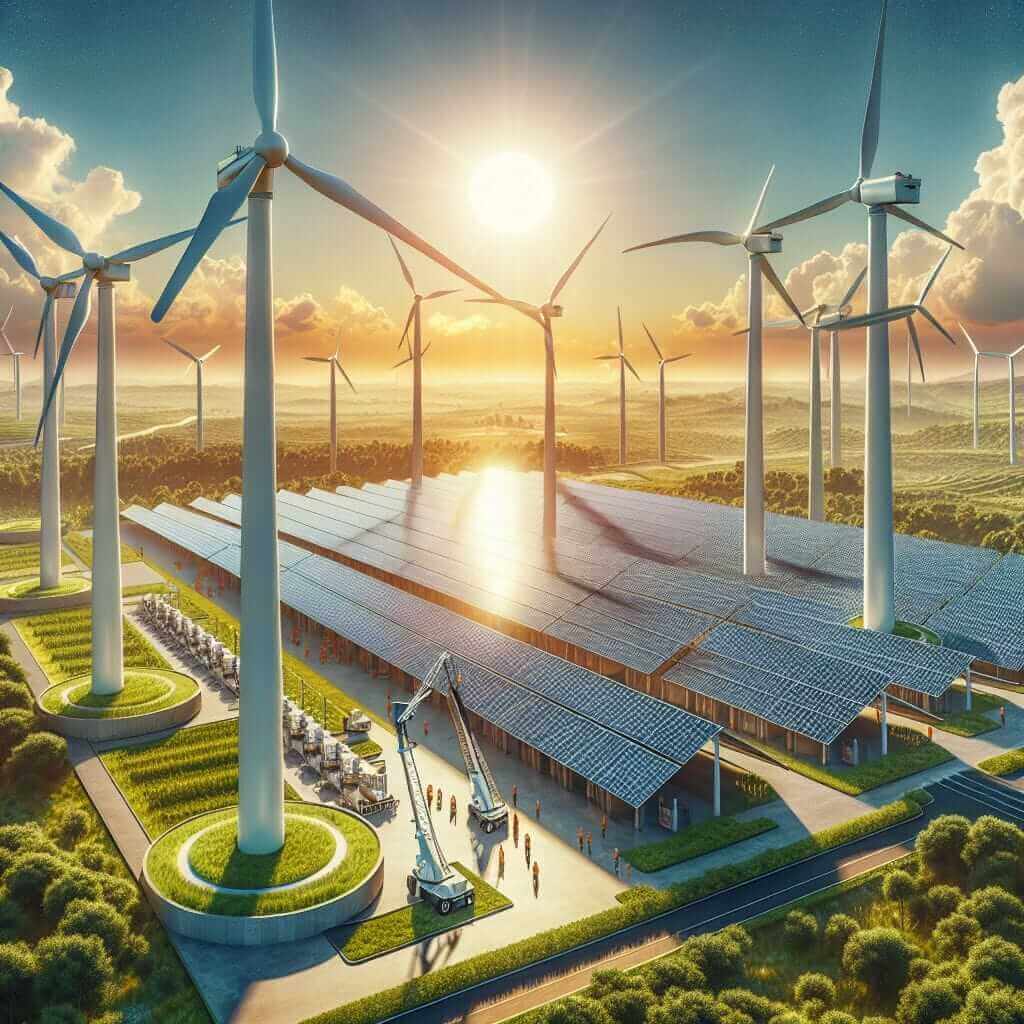The IELTS Reading section is a crucial part of the test, challenging your ability to understand texts and answer related questions accurately. Topics related to the impacts of renewable energy subsidies on the economy are frequently discussed in the context of global changes and sustainable development, making it a relevant subject for IELTS candidates. In this article, we’re going to delve deep into this topic and provide you with a full reading practice exam that mirrors the format of actual IELTS Reading exams.
Reading Practice Exam: Renewable Energy Subsidies and Economic Impact
Reading Passage
Impacts of Renewable Energy Subsidies on the Economy
Governments around the world are implementing subsidies for renewable energy as part of their strategy to combat climate change and promote sustainable energy. These subsidies come in various forms, including tax rebates, grants, and feed-in tariffs. The impacts of these subsidies on the economy can be seen in multiple sectors and have sparked debates among economists and policymakers alike.
Firstly, subsidies for renewable energy can stimulate economic growth by creating jobs. The renewable energy sector, which includes solar, wind, geothermal, and biomass energy, requires a mix of skilled and unskilled labor. This can lead to a reduction in unemployment rates and contribute to the economic development of rural areas where many renewable energies are produced. As the demand for renewable energy technologies increases, so does the need for manufacturing, installation, and maintenance services, providing further employment opportunities.
Secondly, renewable energy subsidies can enhance energy security by reducing dependence on imported fuels. Countries that have limited fossil fuel resources often rely on imports to meet their energy needs. However, by investing in renewable energy sources, these nations can produce their own energy and reduce their exposure to volatile global energy markets. This energy independence can help stabilize energy prices and improve the balance of trade.
Moreover, subsidies for renewable energies can also lead to technological advancements and innovations. Financial incentives encourage private and public sector investments in research and development. Breakthroughs in renewable energy technologies can enhance efficiency, reduce costs, and create a competitive edge for industries leading these innovations.
On the downside, such subsidies can strain government budgets and potentially lead to higher taxes. Critics argue that subsidies distort market dynamics by favoring certain industries over others. There are also concerns regarding the sustainability of these subsidies, given the substantial financial commitments involved.
In summary, while renewable energy subsidies can drive economic growth, create jobs, improve energy security, and foster innovation, they must be carefully managed to avoid fiscal strain and market distortions.
Questions
Identifying Information (True/False/Not Given)
- Renewable energy subsidies always lead to a net increase in government revenue.
- Renewable energy can contribute to economic development in rural areas.
- All countries are able to produce renewable energy without subsidies.
- Market distortions are a potential negative impact of renewable energy subsidies.
- Leveraging renewable energy eliminates the need for any fossil fuel imports.
Multiple Choice
-
Renewable energy subsidies can positively impact:
A. Employment rates
B. Fossil fuel imports
C. Technological advancements
D. All of the above -
Which of the following is a major criticism of renewable energy subsidies?
A. They provide substantial employment opportunities.
B. They encourage energy independence.
C. They strain government budgets.
D. They foster private sector investments.
Matching Information
8-10. Match the following impacts to the correct statements:
A. Economic growth
B. Energy security
C. Technological innovations
- Creates jobs and reduces unemployment rates (8. ____)
- Leads to efficient and cost-reducing breakthroughs (9. ____)
- Minimizes reliance on imported fuels (10. ____)
Answer Key and Explanations
-
False / Not given in the passage.
-
True / It mentions economic development in rural areas.
-
False / Subsidies are needed to promote renewable energy.
-
True / Market distortions are discussed as a potential downside.
-
False / It reduces but does not eliminate the need for imports.
-
D / The passage mentions all these impacts.
-
C / Straining government budgets is highlighted as a major criticism.
-
A / Creating jobs is linked to economic growth.
-
C / Breakthroughs in efficiency are tied to innovation.
-
B / Reducing imports is related to energy security.
Common Mistakes
- Misinterpreting Information: Be careful not to misinterpret details. Verify your understanding by checking the context in which the information is presented.
- Overlooking Negative Aspects: Ensure you account for both positive and negative impacts discussed in the text.
- Ignoring Context Clues: Use surrounding sentences and paragraphs to clarify ambiguous statements.
Vocabulary
Here are some challenging words from the passage:
- Subsidies /ˈsʌbsɪdiz/ (n) – Financial support provided by the government.
- Innovations /ˌɪnəˈveɪʃənz/ (n) – New methods, ideas, or products.
- Unemployment /ˌʌnɪmˈplɔɪmənt/ (n) – The state of not having a job.
- Dependency /dɪˈpɛndənsi/ (n) – Reliance on something or someone.
- Distortions /dɪˈstɔːrʃnz/ (n) – Misrepresentations or skewing of facts or situations.
Grammar Focus
Complex Sentences:
- Complex sentences help convey detailed information by combining independent and dependent clauses.
- Example: “Although renewable energy subsidies can lead to market distortions, they are essential for fostering economic growth and innovation.”
Advice for High Reading Scores
- Practice Regularly: Consistent practice helps improve your reading speed and comprehension.
- Expand Your Vocabulary: A broad vocabulary will help you understand texts better and answer questions more accurately.
- Analyze Question Types: Familiarize yourself with the different question types and practice with each to build confidence.
- Time Management: Practice under timed conditions to improve your ability to complete the section within the allotted time.

By mastering these techniques and regularly practicing, you’ll be well prepared for the IELTS Reading section and improve your overall score. Happy studying!